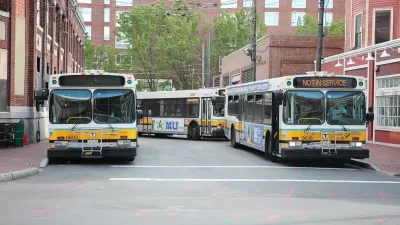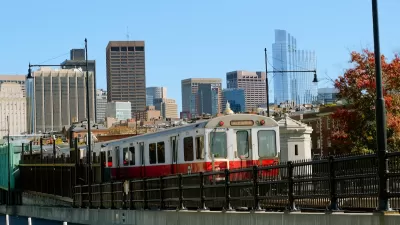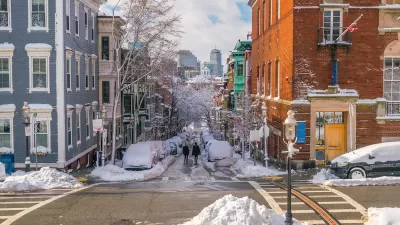The urban farming movement won a big victory recently in Boston, where new zoning regulations allowed for the creation of certain kinds of commercial farms within city limits.
Boston recently passed Article 89, a new zoning ordinance that allows the operation of certain kinds of farms, including commercial farms. The new rules overturn the strict controls put in place in 1965 by the citywide zoning code that made it virtually impossible to farm in Boston.
The aspirations of urban farming advocates are well intentioned "to improve the quality of the food city-dwellers eat, decrease the distances food must travel before it arrives in their stomachs, and provide access to nutritious produce in low-income neighborhoods." Still unclear, however, is whether urban farming can deliver, in reality, benefits of energy efficiency compared to contemporary rural farming practices and whether farming uses will pencil out for developers in urban areas of high property value.
Nefakh’s story approaches the uncertainty of urban farming's future by exploring some of the more creative possibilities made possible by the new code, describing ideas like high-rise farming, hydroponic trays, shipping container mini-farms, and undersea edibles, among other ideas.
For the record, “Boston’s Department of Neighborhood Development is already accepting proposals for three separate sites in Dorchester and Roxbury that they hope will turn vacant lots into farmland,” reports Nefakh.
FULL STORY: If urban farming took off, what would Boston look like?

Study: Maui’s Plan to Convert Vacation Rentals to Long-Term Housing Could Cause Nearly $1 Billion Economic Loss
The plan would reduce visitor accommodation by 25,% resulting in 1,900 jobs lost.

North Texas Transit Leaders Tout Benefits of TOD for Growing Region
At a summit focused on transit-oriented development, policymakers discussed how North Texas’ expanded light rail system can serve as a tool for economic growth.

Why Should We Subsidize Public Transportation?
Many public transit agencies face financial stress due to rising costs, declining fare revenue, and declining subsidies. Transit advocates must provide a strong business case for increasing public transit funding.

How to Make US Trains Faster
Changes to boarding platforms and a switch to electric trains could improve U.S. passenger rail service without the added cost of high-speed rail.

Columbia’s Revitalized ‘Loop’ Is a Hub for Local Entrepreneurs
A focus on small businesses is helping a commercial corridor in Columbia, Missouri thrive.

Invasive Insect Threatens Minnesota’s Ash Forests
The Emerald Ash Borer is a rapidly spreading invasive pest threatening Minnesota’s ash trees, and homeowners are encouraged to plant diverse replacement species, avoid moving ash firewood, and monitor for signs of infestation.
Urban Design for Planners 1: Software Tools
This six-course series explores essential urban design concepts using open source software and equips planners with the tools they need to participate fully in the urban design process.
Planning for Universal Design
Learn the tools for implementing Universal Design in planning regulations.
Ascent Environmental
Borough of Carlisle
Institute for Housing and Urban Development Studies (IHS)
City of Grandview
Harvard GSD Executive Education
Toledo-Lucas County Plan Commissions
Salt Lake City
NYU Wagner Graduate School of Public Service





























